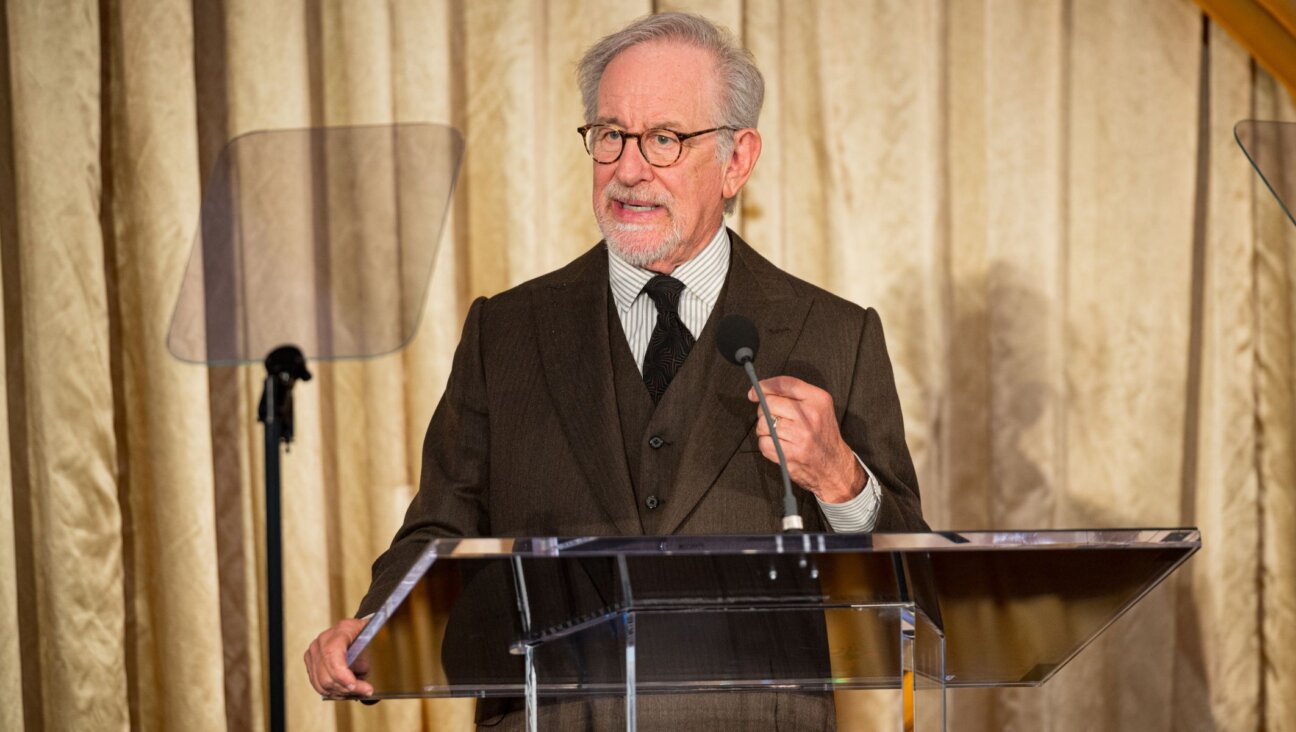Condi’s Unsurprising (Yet Praiseworthy) Speech
Morton A. Klein’s opinion article condemning Secretary of State Condoleezza Rice’s speech to the American Task Force on Palestine is wrong at nearly every turn (“Condi’s Shocking Speech,” October 20).
Her remarks should not be startling. They represent a reiteration of President Bush’s commitment “to two democratic states, Israel and Palestine, living side by side in peace and security,” which he first stated in June 2002, and his declaration at the United Nations General Assembly last month that “helping the parties reach this goal is one of the great objectives of my presidency.”
Klein sharply questions Rice’s “claims about moderate Palestinians.” Yet a poll of Palestinians taken by the Palestinian Center for Public Opinion earlier this month demonstrates that a majority of Palestinians are, in fact, moderate. The poll finds that 52.7% of Palestinians oppose Hamas for rejecting the international community’s conditions for resumption of aid to the Palestinians: recognition of Israel, renunciations of terrorism and acceptance of past Israeli-Palestinian agreements. Furthermore, 61.4% of Palestinians favor a meeting of Palestinian President Mahmoud Abbas with Israeli Prime Minister Ehud Olmert.
Klein also faults Rice for “ignoring the fact” that the West Bank and Gaza “are not occupied territories.” Prime Minister Ariel Sharon, nearly two years ago, called Israel’s control of these areas an “occupation.”
Klein criticizes Rice for pledging support to President Abbas and argues that Abbas is not “a moderate leader.” Yet, for many years while Arafat was the Palestinian leader, critics of the Oslo process said that they wished the Palestinians had a leader who said in Arabic to their people the same things they said in English to the international community, namely that they want to negotiate a settlement with Israel.
Since Arafat’s death, Abbas has demonstrated, in words and deeds, a desire to negotiate a solution to the Israeli-Palestinian conflict. He has been pressing Hamas to accept the international community’s conditions, refusing to enter into a national unity government with Hamas leaders until they do so.
We can learn an important lesson by looking back on Israel’s withdrawal from Gaza. Sharon did not negotiate with Abbas, thereby weakening him and strengthening Hamas. The Bush administration also made a mistake by not bolstering Abbas since he replaced Arafat as the Palestinian leader.
The American government — including both the administration and Congress — should learn from this mistake and now do all that it can to bolster Abbas’s position so that he and other Palestinian moderates can prevail in their power struggles with Hamas. Once this happens, Israel will have a genuine partner to negotiate with.
Secretary Rice should be commended for taking steps to strengthen Abbas and to seek to assure Israel’s security by helping to resolve the Israeli-Palestinian conflict.
This is what Israelis want, too. A poll last month showed that 67% of Israelis support negotiations even with a Palestinian national unity government that includes Hamas.
In addition to being embraced by Israelis and Palestinians, a sustained, vigorous effort by the United States to resolve this conflict would enhance America’s standing in the world, particularly in the Middle East, remove an important anti-American rallying cry from Islamist terrorists and strengthen Israel’s security.
Seymour D. Reich is president of the Israel Policy Forum and a former chairman of the Conference of Presidents of Major American Jewish Organizations.















